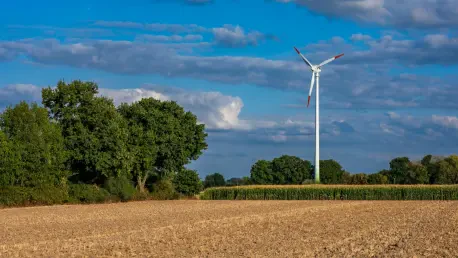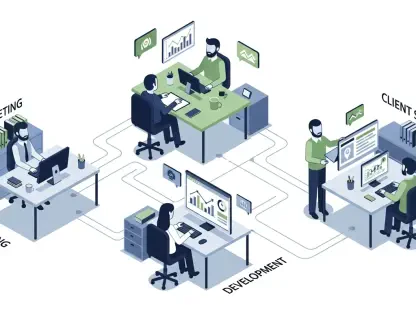In a world where the demand for sustainable food systems continues to grow, a global nonprofit has taken significant steps to transform the meat supply chain by empowering smallholder farmers. Heifer International, an organization dedicated to supporting agricultural communities, has recently wrapped up impactful investments in two key players in the regenerative meat sector. These initiatives have not only enhanced processing capabilities and market access for rural producers but also set a precedent for sustainable practices in the industry. The focus on building resilient food systems addresses critical challenges faced by small-scale livestock farmers, such as limited infrastructure and market barriers. By fostering growth in regional meat processing and creating economic opportunities, Heifer International is paving the way for a more equitable and environmentally conscious approach to agriculture. This development marks a pivotal moment in the journey toward sustainability, highlighting the potential for nonprofit interventions to drive systemic change.
Empowering Farmers Through Strategic Investments
Heifer International’s recent efforts have centered on strengthening the meat supply chain by supporting smallholder farmers through targeted investments in Grass Roots Farmers’ Cooperative (GRFC) and Cypress Valley Meat Company (CVMC). The impact on CVMC has been particularly notable, with the company expanding from three to six processing facilities, now catering to nearly 3,000 farmers across 12 states. This growth has significantly increased processing capacity, ensuring that small-scale producers have reliable access to infrastructure critical for their operations. Beyond infrastructure, the expansion has spurred job creation in rural communities, providing a much-needed economic boost. Such developments underscore the importance of localized supply chains in addressing the unique needs of smallholder farmers, allowing them to compete in broader markets while maintaining sustainable practices that benefit both the environment and their livelihoods.
Another dimension of these investments lies in the adaptation of GRFC to modern market dynamics, showcasing how strategic support can transform traditional farming models. By transitioning to a direct-to-consumer e-commerce platform, GRFC has enabled its farmer members to reach customers across the nation, bypassing conventional market constraints. This shift has opened new revenue streams for farmers, ensuring better income stability and reducing dependency on intermediaries. The move to digital sales channels reflects a broader trend in agriculture toward leveraging technology to enhance market access. Moreover, the focus on direct connections fosters transparency, allowing consumers to make informed choices about sustainably sourced meat. Heifer International’s role in facilitating this transition highlights the potential for nonprofit partnerships to drive innovation, ultimately creating a more inclusive food system that prioritizes the needs of small-scale producers.
Stakeholder Insights on Transformative Impact
Voices from key stakeholders reveal the profound effects of Heifer International’s investments on the meat supply chain and rural economies. Oscar Castañeda, Senior Vice President of Heifer Americas, has emphasized the nonprofit’s dedication to placing farmers at the heart of food system resilience. Improved processing capabilities and market access are seen as essential for ensuring fair compensation for farmers, addressing longstanding inequities in the agricultural sector. This perspective aligns with the broader mission to create sustainable models that benefit both producers and consumers. The emphasis on farmer-centered solutions points to a holistic approach, where economic growth and environmental stewardship go hand in hand, offering a blueprint for other regions to follow in building stronger, more resilient food systems.
Complementing this view, leaders from the supported enterprises have shared how Heifer’s involvement has catalyzed significant advancements in their operations. Cody Hopkins, CEO of GRFC, highlighted the nonprofit’s contribution to expanding processing access and enabling direct consumer engagement, which has also bolstered rural employment. Similarly, Brandon Dunn, CEO of CVMC, credited the partnership for modernizing facilities and driving operational growth. These testimonials converge on a common theme: the investments have laid a foundation for sustainable supply chains that prioritize farmer welfare and economic equity. The collaboration between Heifer International and these companies demonstrates the power of strategic alliances in overcoming systemic challenges, ensuring that smallholder farmers are not left behind in the evolving agricultural landscape.
Future Directions in Farmer Empowerment
Looking ahead, Heifer International is shifting its approach from direct financial investments to a focus on facilitation and education, aiming to equip farmers with the tools needed for long-term success. This new strategy emphasizes training programs, digital resources, peer learning opportunities, and enhanced market connections. The Heifer Ranch Center for Regenerative Agriculture in Perryville, Arkansas, will serve as a cornerstone for these initiatives, offering hands-on training and advocacy platforms led by farmers themselves. Additional efforts include conservation certifications and international knowledge exchanges, reinforcing a commitment to sustainable practices. This pivot reflects an understanding that empowering farmers with knowledge and networks can create lasting impact, fostering independence and resilience in the face of industry challenges.
The broader vision behind this strategic shift is to cultivate a culture of community-led innovation within agriculture, prioritizing regenerative practices and localized supply chains. By focusing on capacity building, Heifer International aims to tackle systemic issues such as environmental degradation and economic disparity. The emphasis on farmer-driven solutions ensures that interventions are tailored to the specific needs of rural communities, enhancing their ability to adapt to changing market and climate conditions. This forward-thinking approach signals a move toward sustainability that is not only environmentally sound but also economically viable for smallholder farmers. As these programs roll out, the potential for scalable impact becomes evident, offering a model for global agricultural transformation through education and empowerment.
Reflecting on Achievements and Next Steps
Reflecting on the journey, Heifer International’s completed investments in GRFC and CVMC marked a significant milestone in enhancing processing capabilities and market access for thousands of smallholder farmers. The growth in rural job opportunities and the adoption of sustainable practices stand as testaments to the power of targeted nonprofit support. Moving forward, the focus shifts to equipping farmers with training and resources to navigate future challenges independently. This dual legacy of tangible impact and a vision for empowerment underscores the organization’s role in shaping resilient meat supply chains. As the agricultural sector continues to evolve, stakeholders are encouraged to explore collaborative models and invest in education-driven initiatives that sustain both the environment and rural economies for generations to come.









